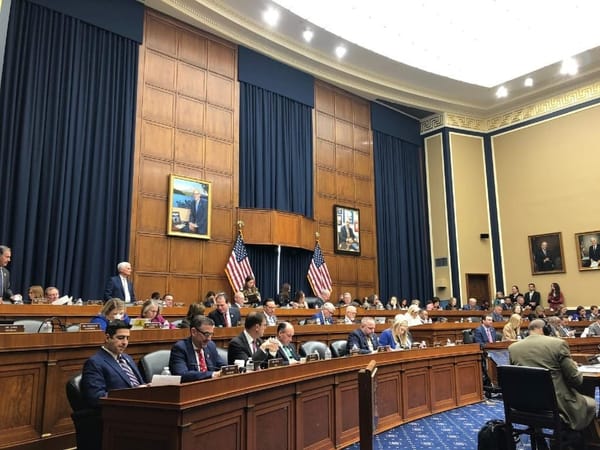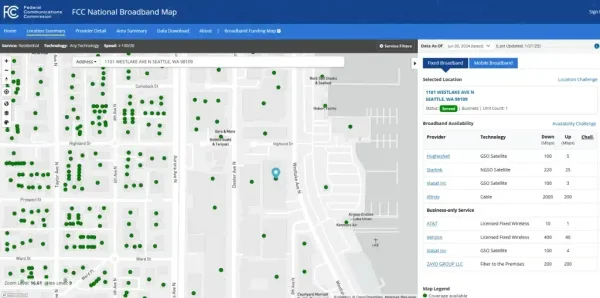Can Telecoms Stop Fixed Wireless Fraud and Bandwidth Abuse?
These issues not only strain network resources but also threaten customer satisfaction and the ability to deliver on service-level agreements.
Rick Fulwiler

An Ericsson report revealed that Fixed Wireless Access (FWA) data traffic reached 19% of global mobile network data traffic by the end of last year. Even more recently, in Q3 2024, Verizon reported nearly 4.2 million FWA subscribers, reaching its target subscriber goal over a year ahead of schedule.
In short, FWA is booming and disrupting decades-old business models of traditional wireline network operators thanks to its increased flexibility, low costs, and high speeds.
However, the fraudulent use of FWA connections is also growing. Examples include overt forms, such as someone using a black box to connect to the network illegally, as well as softer cases that violate fair use clauses in their terms of service, like a neighbor using a WiFI extender to re-sell their connection to their entire apartment complex or a residential user using their connection to operate a high-speed commercial server.
Considering that FWA subscribers already use anywhere from 20 to 50 times more bandwidth than mobile users, it’s not hard to imagine how fraud can cause a host of problems for FWA operators, including but not limited to network strain, increased operational costs, and revenue loss. So, are carriers up for the task of stopping FWA bandwidth hogs?
Subscriber churn
When a carrier deploys FWA in a given area—particularly residential ones—it accounts for specific bandwidth usage and configures the RAN in that area with those estimates in mind. Yet when too many unexpected devices or mega-users (i.e., bandwidth hogs) connect to the network, they can cause significant disruptions. These could manifest as slowdowns in service for other FWA users, or they could impact traditional mobile wireless subscribers in the form of connection issues and dropped calls if the local RAN becomes overwhelmed.
Overall, 5G FWA subscribers report high levels of customer satisfaction. Research shows they value performance and reliability, and many will pay a premium to ensure a guaranteed speed tier. However, don’t think that they won’t switch back to competing fiber or cable connections if their experience changes. Businesses are also unlikely to invest in 5G FWA if it is seen as unreliable, and carriers risk financial penalties if they fail to uphold service-level agreements (SLAs) with businesses that require steady, stable connections.
With these factors in mind, carriers need to understand when devices and users are monopolizing their bandwidth—resulting in unreliable, erratic service—or risk subscriber churn and spending more to maintain the network.
Increased operational and planning costs
Designing and maintaining 5G networks is already a complex process. Fraud and bandwidth abuse further complicate and negatively impact network planning by skewing usage trends, potentially causing telecoms to spend millions purchasing additional spectrum or adding more RAN capacity in areas that may not otherwise need it.
Of course, these are among the most expensive costs for a carrier, and doing so may be cost-prohibitive. Similarly, in some urban areas, where carriers are already at a saturation point, adding spectrum or RAN capacity may not be physically possible. These limitations underscore the importance of efficient bandwidth management to avoid replanning from a radio access perspective.
Fortunately, carriers can identify problematic users by correlating users to control plane traffic and determine irregularities in data usage, number of connections, app usage, and more. This requires monitoring the core network all the way down to the RAN. Once proper monitoring is in place, carriers can set policies preventing unauthorized use of the network and better troubleshoot issues that may be contributing to performance problems in a given area.
The road ahead for 5G FWA
As fixed wireless access becomes an integral part of the 5G ecosystem, carriers face growing pressure to address the challenges posed by fraud and bandwidth abuse. These issues not only strain network resources but also threaten customer satisfaction and the ability to deliver on service-level agreements.
The solution lies in proactive network management—leveraging advanced tools to monitor usage patterns, detect anomalies, and mitigate misuse. By identifying and addressing these challenges early, carriers balance offering flexible, high-speed connections and ensuring the stability and reliability that both residential and business users expect.
Rick Fulwiler leverages three decades of technology experience in the Telecom industry to his position as Senior Director, Product Management at NETSCOUT working closely with our global customers and strategic partners on AI, analytics, 5G and virtualization. This Expert Opinion is exclusive to Broadband Breakfast.
Broadband Breakfast accepts commentary from informed observers of the broadband scene. Please send pieces to commentary@breakfast.media. The views expressed in Expert Opinion pieces do not necessarily reflect the views of Broadband Breakfast and Breakfast Media LLC.









